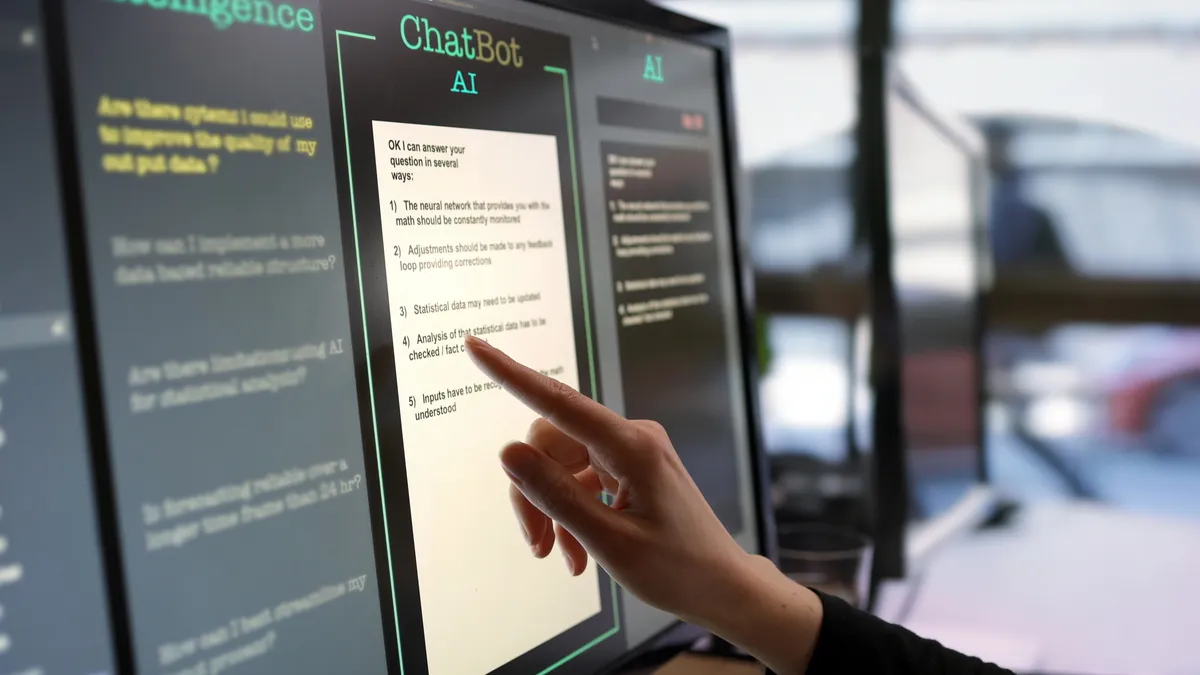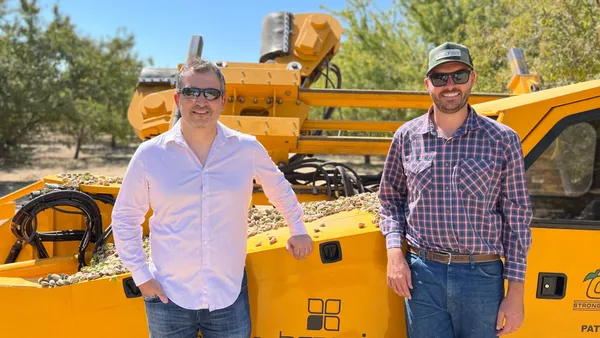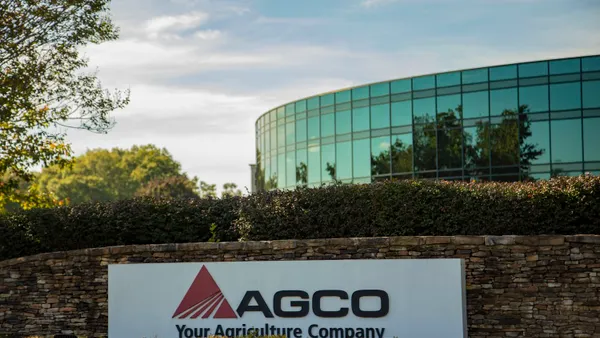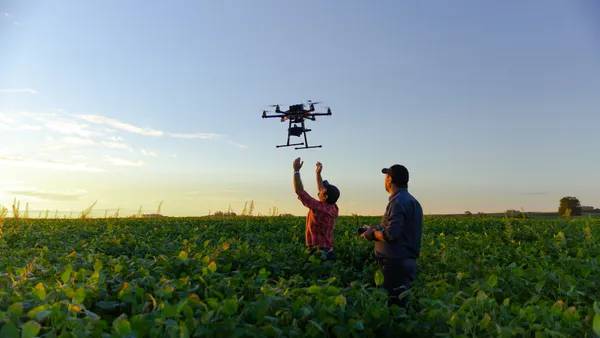The COVID-19 pandemic pushed food systems to the brink of crisis. Agtech startup Helios has created an AI-powered supply chain assistant that aims to help producers prevent the next shortage and subsequent chaos in grocery stores and the food system.
Helios on Thursday launched Cersi, a chatbot that harnesses billions of climate, economic and political signals to forecast potential supply chain risk down to the farm level. The virtual assistant is part of Helios' larger risk management platform, which was launched in December, and is meant to help large food companies get a better handle over their agriculture supply chains.
"When we talk to a lot of our customers, their biggest fear is not having product on the shelf," Helios CEO and co-founder Francisco Martin-Rayo said in an interview with Agriculture Dive. "The earlier you know the risks, the more time there is to address supply or find other ways to source it."
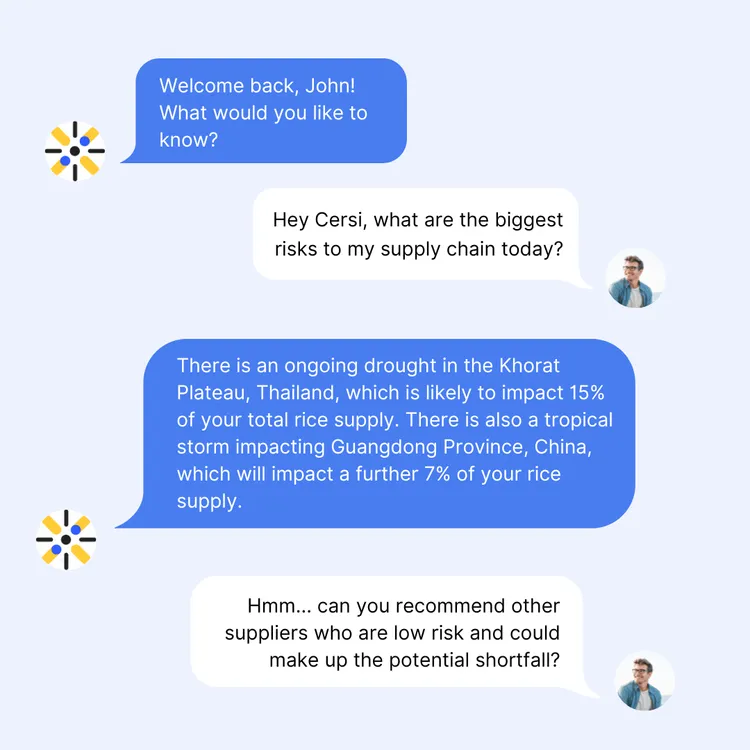
The introduction of Cersi comes as Helios announces $1.85 million in pre-seed funding led by Supply Change Capital with participation from January Ventures. Helios is advised by Bill Hovis, former global chief procurement officer for Coca-Cola, and Una Hrnjak, who leads Aldi's sustainability strategy and programs.
Helios' platform allows businesses to plug into growing areas or addresses of their farm partners to see in real-time how climate patterns, market volatility and other factors impact a supplier's ability to fulfill a contract. Users can then ask Cersi questions on how to manage risk, including whether they should pivot to another supplier or invest in farm operations to help boost crop yields.
As extreme weather makes farming more unpredictable, technology like Helios will become important in preventing food shortages down the line, according to Martin-Rayo. The tech could also eventually help companies identify future production areas as climate change reshapes where crops are grown.
Finding ways to invest in farm partners will also become more important as hotter temperatures make it more difficult to simply shift suppliers. As more farms feel the effects of climate change, Martin-Rayo said businesses are preparing to invest more in equipment, technology or other services to assist production.
"We've never yet had a conversation where someone says: 'Tell me the suppliers that don't work and we won't contract with them,'" said Martin-Rayo. "Almost all the conversations are: 'How can we help more?'"
Correction: In a previous version of this article, the chatbot was misidentified. It is called Cersi.



